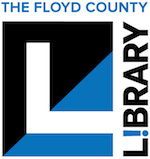Next Tuesday, April 18, is Yom Hashoah, the Jewish Day of Remembrance of the Holocaust. Our Dusting Off the Classics book group read the diary of Anne Frank for our meeting last week, which I recommend as a way to personalize the value of the lives lost to the violence of the Holocaust. Some of Anne Frank’s schoolmates are still alive, and she might have been too had she not been imprisoned at Auschwitz.
One thing we talked about at our meeting was how posterity has come to view Nazi collaborators, civilians who knew what was going on and did nothing to stop it. Do we want them held accountable as war criminals? Do we accept that they were trying to survive themselves? Often, in the United States, we tend to downplay the amount that the general public knew about Nazi plans, but contemporary documents like Anne Frank’s diary make it clear that everyday people did know about concentration camps, knew that their neighbors were likely going to die. What do we wish our parents and grandparents had done while this was happening? What do we hope we would do in their position?
I can’t tell you how to answer these questions. I can only hope that you ask them, and that you can live peacefully with your answers.
The Dressmakers of Auschwitz: the True Story of the Women Who Sewed to Survive
Come to This Court and Cry: How the Holocaust Ends
The Escape Artist: the Man Who Broke Out of Auschwitz to Warn the World
Nazi Billionaires: the Dark History of Germany’s Wealthiest Families
The School That Escaped the Nazis: the True Story of the Schoolteacher Who Defied Hitler
